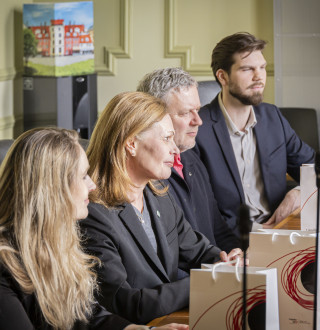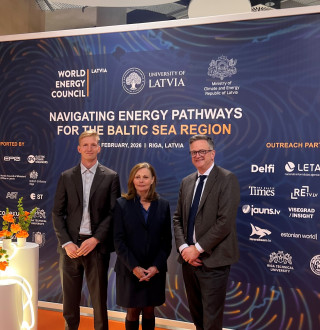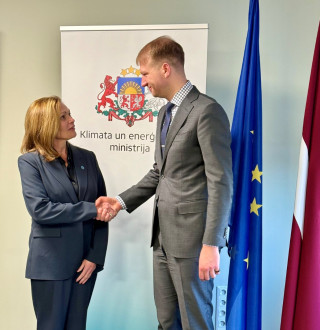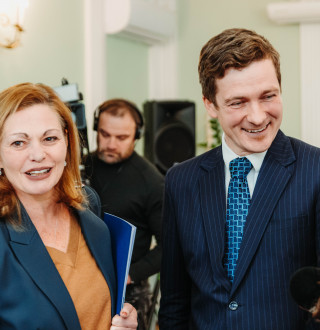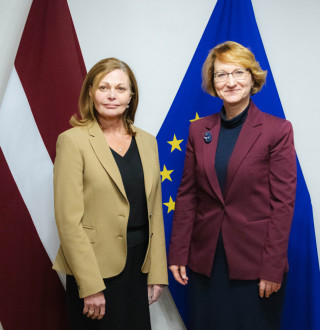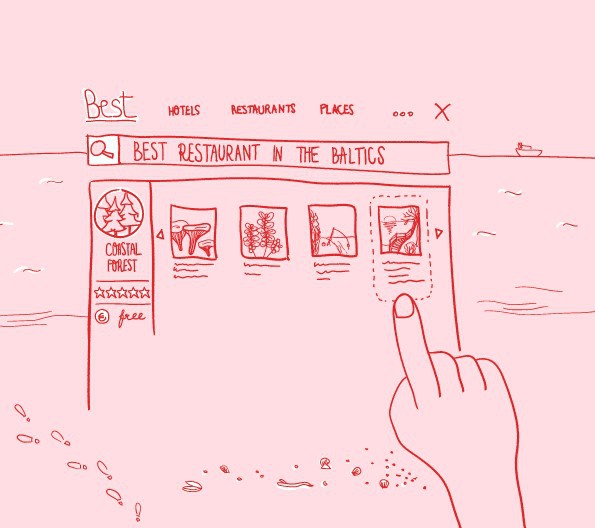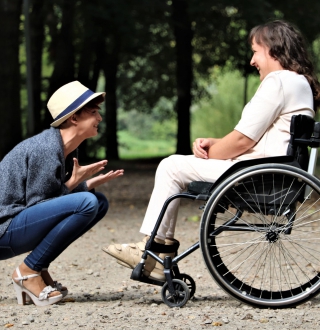The Nordic Council of Ministers has published a research project identifying 8 megatrends affecting the future of food in the Nordic-Baltic region. The research has taken place in the context of climate change and the possibilities brought about by the industry revolution 4.0, digitalization, as well as the social context of inequality and climate anxiety. Aimed at drawing attention to likely future scenarios, the project's goal is to overcome food system-related hurdles ahead of time before these issues become disruptive.
The megatrends range from the redesign of food systems and modern technological impact to changes in dietary preferences and consumption patterns, and even an identified trend of societal anxiety around changes linked to overconsumption and climate change.
The research project consists of various components, including a report, a hackathon, and an upcoming survey on Covid-19's impact on consumers, all with a goal to identify the future of food that will join the Nordic-Baltic region, as they are inexorably intertwined in biodiversity, value chains, and food systems.
“Thinking about the future essentially means thinking about sustainability. The Future Trends of Food in the Nordic-Baltic Region project was based on this rationale of a jointly imagined future of food for the Nordic and Baltic region. It is an ongoing exercise that we should pursue all together.” – Maija Kale, Adviser at Nordic Council of Ministers' Office in Latvia
A variety of likely outcomes have been identified, ranging from a polarization of society, to the enhancement of efficiency due to technologies and data availability. In all cases, potential pitfalls are identified, which will require joint, timely action to combat the potentially negative side effects of the evolution of food systems.
The megatrends can already be observed in action in a variety of industries. Most notably, the side effects of a generation looking to sustainable lifestyle solutions, including dietary changes, urban gardening, circular economy choices, significantly shifting market demand.
Each megatrend has been visualized in an image for conveying the message in an easily accessible manner. “We included unique illustrations and gifs to showcase the essence of a megatrend in one picture. We did so with the rationale that beautiful design could provide the catalyst to reflect upon the content of the megatrends and create space for the reader to imagine their own – as thinking about megatrends and imagining the future is not work that can ever be finite”, Maija Kale explains.
Changes that will arise as a result of these megatrends will have political, economic, and societal implications. And while coordination is not a simple task, it is in the region's interest to address these challenges for the benefit of future welfare.The Future Trends of Food in the Nordic-Baltic Region project is led by the Nordic Council of Ministers’ Office in Latvia and includes partners from the Nordic Food Policy Lab, EIT Food, the Baltic Studies Centre (LV), Sitra (FI), Matis (IS), BIOR (LV), TFTAK (EST), Nordic Food Tech (DK), and LitMEA (LT).
More about research project https://www.futureoffood.eu/
Identified megatrend summary:1. Technology will penetrate all areas of social life
This brings both benefits, as well as strife. It will accelerate the tension between the “tech-can-fix-it” paradigm and a shift towards nature-based solutions
2. Food systems will be redesigned with a new set of goals
Moving away from the industrialization and exploitation of nature that was used to rapidly increase volume of food production and global supply.
3. Digitalisation is opening new horizons
Digitalisation is making our decisions more informed than ever before, however, the technological divide will put lesser-connected communities at a disadvantage.
4. Society will become increasingly polarised
The paradox that people working in food systems across the globe continue to be among the most food-insecure demonstrates that the social gap is becoming increasingly wide, sowing fertile ground for the polarization of opinions.
5 Products will be valued based on the amount of waste they produce
For the first time since the industrial revolution, decoupling economic growth from waste production. Emphasizing a circular economy in both consumer, manufacturer, and agricultural industries.
6. A new appreciation for the environment will develop
With biodiversity threatened and global resources being over-extracted, environmental challenges, sustainability, and resilience will be central to any decision-making process, facilitating the emergence of new social trends and new commercial sectors.
7. People will become more anxious and fearful
Our relationship with risk is changing as we enter a time with record-levels of anxiety based on the uncertainty of our futures due to climate change. Trust building will become increasingly important for the mental health of society at large.
8. New lifestyles will emerge and redefine our value systems
Dietary preferences and consumption patterns are changing, particularly among young people. This is causing a renaissance in food systems, including the rebirth of small-scale agriculture and shifts in consumer demand. This is at odds with those unwilling to change, leading to a polarization and establishment of “dietary extremism”, a new societal challenge.
